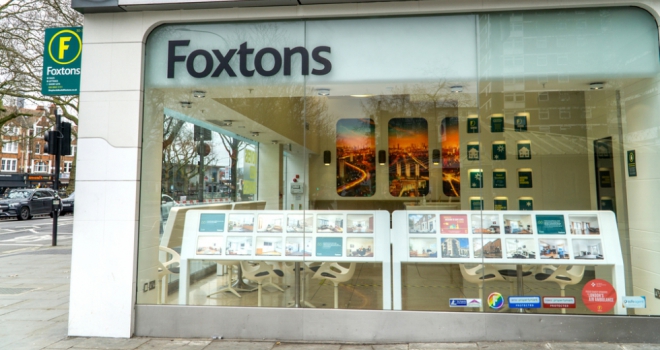
"Months of otherwise steady momentum in stock levels and buyer activity were slowed by the uncertainty and market nervousness the mini-budget brought"
- Guy Gittins - Foxtons
The research by Foxtons analysed the health of the London market since the mini budget in September 2022, the impact it had and how the market has bounced back in recent months.
The latest full monthly transaction data for March of this year shows that sales have once again started to rise, climbing to 5,060 from the market low witnessed in February - an 11% month-on-month increase.
Harrow has seen the sharpest return to form, with transaction levels up 43.4%, followed by Kensington and Chelsea (+42.9%) and Redbridge (42.9%).
Sellers are also returning to the fold, with the number of homes listed for sale hitting 101,457 in September of this year, marking a full return to pre-mini budget market conditions, with every borough seeing an increase in stock for sale versus the previous low seen in March of this year.
Mini-budget impact on house price
The research shows that the average London house price had been climbing steadily in the run-up to the mini-budget, increasing by 1% between July and September 2022. However, in the months that followed, it fell by -4.2% to a low of £520,961 in March of this year.
The biggest declines were seen across the boroughs of Kensington and Chelsea (-11.2%), Brent (-8.7%) and Islington (-6.9%), while just four boroughs avoided a mini-budget-induced market downturn - Tower Hamlets, Hounslow, Greenwich and Havering.
Drop in sales stock
Further analysis by Foxtons shows that this drop in London house prices was driven by a two-pronged reduction in both available stock and buyer appetite.
In September of last year, there were just shy of 100,000 homes listed for sale across the London market. This fell to a low of 86,291 homes listed for sale by January 2023 and by March, total stock levels still sat some way off pre-mini budget levels at just 89,279.
Again, Islington ranked as one of the worst-hit boroughs, with sale stock falling by -19.1% between September 2022 and March 2023. Waltham Forest and Lambeth also saw reductions of -19%.
Transactional decline
But it wasn’t just a reduction in seller activity that impacted the market, internal data from Foxtons shows that there was a decline in buyer interest, with buyer applications falling by -46% between September and October 2022.
Further research by Foxtons also shows that some 8,311 property sales completed in September 2022, the third consecutive month that London transaction levels had exceeded the 8,000 threshold.
Following the mini-budget, this figure fell consistently every month, hitting a low of 4,531 homes sold in February of this year.
Signs of the London market revival
However, the research by Foxtons suggests that the London market has now turned the corner.
Foxtons internal data shows that buyer applicant levels have increased by 27% between September of this year and October, with October 2023 also seeing 69% more applicants versus October 2022, with this number expected to increase further by the end of the month.
The latest full monthly transaction data for March of this year shows that sales have once again started to rise, climbing to 5,060 from the market low witnessed in February - an 11% month-on-month increase.
Harrow has seen the sharpest return to form, with transaction levels up 43.4%, followed by Kensington and Chelsea (+42.9%) and Redbridge (42.9%).
Sellers are also returning to the fold, with the number of homes listed for sale hitting 101,457 in September of this year, marking a full return to pre-mini budget market conditions, with every borough seeing an increase in stock for sale versus the previous low seen in March of this year.
Foxtons CEO, Guy Gittins, commented:
“There’s no doubt that the government’s mini-budget caused an almost immediate decline in property market health and this impact reverberated across the entire country.
"This was no different across the London market, where months of otherwise steady momentum in stock levels and buyer activity were slowed by the uncertainty and market nervousness the mini-budget brought.
"The good news is that we certainly seem to have turned a corner and across the capital, stock levels have returned to pre-mini budget norms.
"At Foxtons, we’ve seen a 26% year-on-year increase in new sales instructions. So it’s reassuring to see that London’s sellers have placed their trust in us during these tough times, helping us to regain our position as London’s number 1 estate agency in the process, while the data also suggests that the capital’s buyers have now emerged from their mini-budget boltholes in order to transact.
"As a result, the market is largely expected to finish on a positive note by the end of the year and this growing market sentiment should only be strengthened by the Bank of England’s decision to freeze interest rates in September.”





